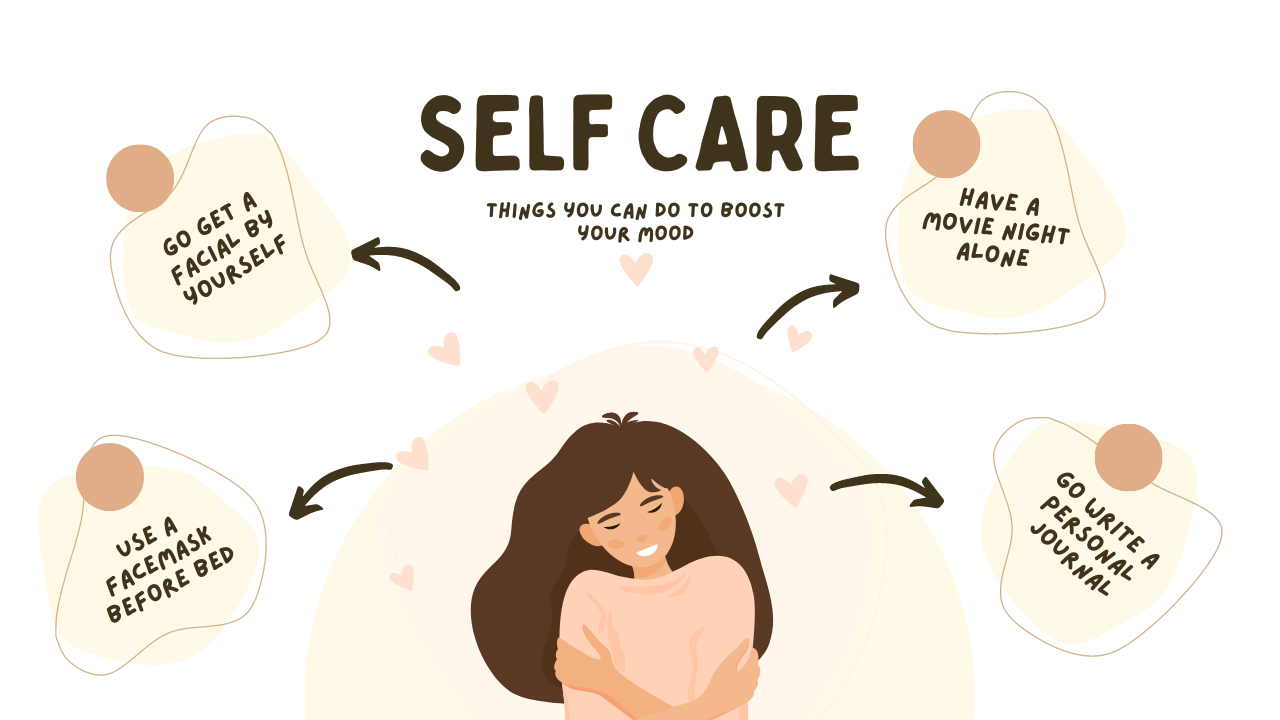Self-care is an essential part of living a happier and more fulfilling life. It is all about taking care of yourself physically, mentally, and emotionally. In today’s fast-paced world, it is easy to neglect your own needs and put others first. However, it is crucial to remember that you cannot pour from an empty cup. Taking care of yourself is not selfish; it is necessary for your overall well-being. Here are ten simple self-care practices that can help you lead a happier life.
1. Practice Gratitude
Take a moment every day to appreciate the things you are thankful for. It could be something as small as a warm cup of coffee or a smile from a stranger. Practicing gratitude can shift your focus from what you lack to what you have, promoting a more positive outlook on life.
2. Get Enough Sleep
Sleep is essential for our physical and mental health. Make sure to get at least 7-8 hours of quality sleep every night. It will leave you feeling refreshed and energized, ready to tackle the day ahead.
3. Eat Nourishing Foods
A balanced and healthy diet is crucial for your well-being. Fuel your body with nutritious foods that will provide you with the energy and nutrients you need to function at your best.
4. Engage in Physical Activity
Regular exercise has numerous benefits for both your physical and mental health. It can reduce stress, improve your mood, and boost your self-esteem. Find an activity that you enjoy and make it a regular part of your routine.
5. Take Mental Breaks
In our fast-paced lives, it is essential to take breaks to rest and recharge. Schedule mini mental breaks throughout your day to relax and clear your mind. It could be as simple as taking a short walk, practising deep breathing, or listening to your favourite song.
6. Disconnect from Technology
In today’s digital age, it is easy to get caught up in technology and lose touch with the real world. Make it a habit to disconnect from your devices for some time every day. It will give you a chance to be present in the moment and connect with your surroundings.
7. Engage in a Hobby
Doing something you are passionate about can bring joy and fulfilment to your life. Whether it is reading, painting, or dancing, make time for activities that bring you happiness.
8. Set Boundaries
Learn to say no when you feel overwhelmed or need some time to yourself. Setting boundaries is essential for maintaining your mental and emotional well-being.
9. Practice Self-Compassion
Be kind to yourself, and practice self-compassion. We are often our own worst critics, but it is essential to treat ourselves with the same kindness and understanding we would give a friend.
10. Surround Yourself with Positive People
The people you surround yourself with can have a significant impact on your well-being. Surround yourself with positive and supportive individuals who uplift and inspire you.

In today’s fast-paced world, taking time for self-care is not just a luxury but a necessity for maintaining overall well-being. Self-care involves activities and practices that nurture our physical, mental, and emotional health. Integrating self-care into your routine can lead to a happier, more balanced life. Here are ten simple self-care practices to help you enhance your well-being and live more joyfully.
1. Establish a Morning Routine
A well-structured morning routine sets a positive tone for the day. Start your day with activities that energize you, such as stretching, meditating, or enjoying a healthy breakfast. This practice helps you begin the day with intention and prepares you mentally for the challenges ahead. By creating a consistent routine, you can boost your productivity and mood throughout the day.
Tip: Try waking up 15-30 minutes earlier than usual to incorporate these activities into your morning. It can make a significant difference in how you feel and perform.
2. Practice Mindfulness and Meditation
Mindfulness and meditation are powerful tools for reducing stress and increasing emotional resilience. Spending just a few minutes each day focusing on your breath and being present in the moment can help you manage anxiety and enhance your overall sense of well-being. These practices encourage self-awareness and can improve your ability to handle life’s challenges.
Tip: Start with short, guided meditation sessions if you’re new to the practice. Apps like Headspace or Calm can be great resources.
3. Prioritize Quality Sleep
Quality sleep is crucial for physical and mental health. Aim for 7-9 hours of restful sleep each night. Develop a sleep routine by going to bed and waking up at the same time each day, and create a calming pre-sleep ritual, such as reading or taking a warm bath. Avoid screens and stimulating activities before bedtime to improve the quality of your sleep.
Discover the Benefits of Mindfulness and Meditation – A Guide to Inner Peace
Tip: Keep your bedroom cool, dark, and quiet to create an optimal sleep environment.
4. Engage in Regular Physical Activity
Exercise is a cornerstone of self-care. Regular physical activity boosts endorphins, which are natural mood lifters. It also helps improve sleep, increase energy levels, and reduce stress. Find an activity you enjoy, whether it’s walking, cycling, yoga, or dancing, and incorporate it into your weekly routine.
Tip: Aim for at least 150 minutes of moderate aerobic activity or 75 minutes of vigorous activity each week, combined with muscle-strengthening exercises.
5. Nourish Your Body with Healthy Foods
What you eat directly impacts your physical and mental health. Focus on a balanced diet rich in fruits, vegetables, whole grains, lean proteins, and healthy fats. Eating nutritious foods can enhance your mood, energy levels, and overall well-being. Avoid excessive consumption of processed foods, sugary snacks, and caffeine.
Tip: Plan your meals and snacks ahead of time to make healthier choices more convenient.
6. Stay Hydrated
Water is essential for maintaining bodily functions, and staying hydrated can have a significant impact on how you feel. Aim to drink at least eight 8-ounce glasses of water per day, and more if you’re physically active. Proper hydration helps with digestion, concentration, and overall health.
Tip: Carry a reusable water bottle with you to remind yourself to drink water throughout the day.
7. Foster Meaningful Relationships
Social connections play a vital role in emotional health. Spend time with friends and family who support and uplift you. Engage in activities that strengthen your relationships and create lasting memories. Meaningful connections provide emotional support, reduce stress, and enhance your sense of belonging.
Tip: Schedule regular catch-ups or social activities to maintain and strengthen your relationships.
8. Set Boundaries and Manage Stress
Setting boundaries is essential for maintaining a healthy work-life balance. Learn to say no when necessary and prioritize your well-being. Effective stress management techniques, such as deep breathing exercises, journaling, or engaging in hobbies, can help you cope with daily pressures and prevent burnout.
Tip: Identify your stress triggers and develop strategies to address them, whether it’s through time management, relaxation techniques, or seeking support.
9. Pursue Hobbies and Interests
Engaging in activities you enjoy can bring joy and fulfillment to your life. Whether it’s painting, gardening, reading, or playing a musical instrument, make time for hobbies that bring you happiness. Pursuing interests outside of work or daily responsibilities provides a creative outlet and contributes to overall well-being.
Tip: Set aside dedicated time each week for your hobbies and explore new interests to keep life exciting and fulfilling.
10. Practice Gratitude
Gratitude involves recognizing and appreciating the positive aspects of your life. Keeping a gratitude journal where you write down things you’re thankful for can shift your focus from what’s lacking to what you have. Regularly practicing gratitude can enhance your mood, increase positivity, and foster a greater sense of happiness.
Tip: Make it a habit to jot down at least three things you’re grateful for each day. Reflecting on these positive aspects can improve your outlook on life.
Self-care is about prioritizing your well-being and taking care of yourself physically, mentally, and emotionally. It may look different for everyone, and it is essential to find what works best for you. By incorporating these ten simple self-care practices into your daily routine, you can lead a happier, healthier, and more fulfilling life. Remember, self-care is not selfish; it is necessary for a happier you.












